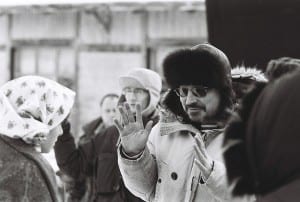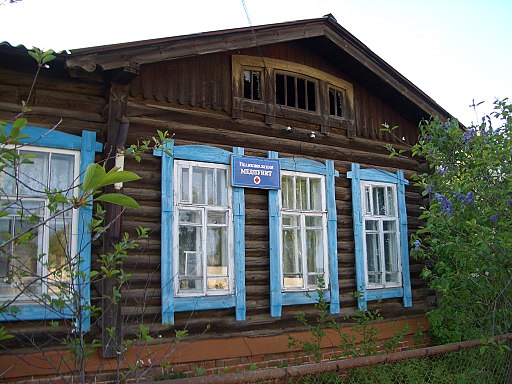Alexei Balabanov: the potency of cinematic story-telling
By Sarah J Young, on 22 May 2013
Alexei Balabanov was as much a cinematic translator as a chronicler of post-Soviet reality, finds Seth Graham
A few days before Alexei Balabanov’s death at age 54 on May 18, I was finishing a blurb for a talented film scholar’s forthcoming book on the director’s work. I wrote: ‘The downside to studying artists who are still alive and working, of course, is that they will always outflank those who study them by creating more art’.
The particularly superstitious might accuse me of hastening Balabanov’s death with this fate-tempting, tongue-in-cheek line (sglazil!). But Balabanov himself did some mortal tempting, and hinting, of his own in his fourteenth and final film, Me Too (2012), in which he appears as a film director who (spoiler alert!) dies an early death. It was not a secret that Balabanov was chronically ill. His relatives, friends and colleagues certainly knew it, and he did not hide it from the public. He said in his last interview that ‘there probably won’t be any more Balabanov films’.
Still, the news of Balabanov’s passing, announced by Sergei Sel’ianov, the director’s perennial producer and co-founder of the CTB production company that funded all of his films for nearly two decades, came as a cruel surprise to Russophiles and cineastes who had gotten used to the regular pleasure of seeing what Balabanov’s latest work had to offer, and which self-designated guardians of Russian culture it would offend.
The latter pleasure was made even more, well, pleasurable due to the fact that Balabanov as an artist typically stayed above such criticism; he was simply not interested in epatage or chernukha or schlock/trash/exploitation or whatever film-studies term you want to use that has been lobbed at filmmakers whose work is considered controversial. He did not make films in order to antagonise or offend or scandalize. He was not the ‘Russian Tarantino’ or even the ‘Russian Scorsese’, despite a similar level of graphic violence combined with formal virtuosity and thematic omnivorousness; Balabanov’s depictions of violence were not, as they often seem to be for Scorsese and other directors, excursus on the nature of violence. His films were excursus on nothing but the concentrated potency of the particular form of storytelling at which he excelled: cinema. (more…)
 Close
Close




